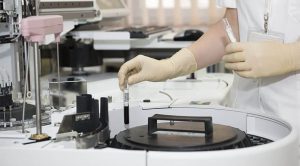Cryptorchidism is the most common cause of non-obstructive azoospermia in man. In contrast to the general belief that temperature-dependent effects on the undescended gonad damage cryptorchid testes before sexual maturation is complete, molecular pathology strongly supports the theory that impaired mini-puberty is responsible for azoospermia and infertility in cryptorchidism.
Cryptorchidism is the most common cause of non-obstructive azoospermia in man. In contrast to the general belief that temperature-dependent effects on the undescended gonad damage cryptorchid testes before sexual maturation is complete, molecular pathology strongly supports the theory that impaired mini-puberty is responsible for azoospermia and infertility in cryptorchidism. Molecular biological observations favor LH deficiency, with EGR4 as a master regulatory gene in Leydig cell dysgenesis, as the reason for impaired mini-puberty, and recent evidence supports the idea that infertility in cryptorchidism is a consequence of alterations in the Piwi pathway.
Download complete article





